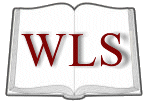 |
 |
UN job advert highlights challenges of translation work What are employers looking for in a top-level translator? One job advertised by a UN agency showed that linguistic ability is merely the starting point: topic area knowledge and specific translation skills are also essential. The United Nations Economic Commission for Africa (ECA) sought to recruit an English-to-French translator to work in Ethiopia. Candidates were required to have knowledge of the Core translator skills specified included: ability to maintain accuracy and consistency in terminology and content, as well as faithfulness to the style and nuances of the original text; ability to use "all sources of reference, consultation and information relevant to the text at hand". The ECA also required at least five years' experience, a university degree or equivalent, and success in the UN competitive examination for translators. A tall order? Yes and no. Certainly "yes" for any aspiring recent graduate, but not for any full-time professional translator with five to ten years' broadly -based experience and specific training in translation skills. But can anyone, regardless of experience, be an expert linguist and an expert in law, science, technology and more, all at the same time? The answer is "probably not", but the knowledge required by a translator in non-linguistic areas is not the same as that required by the expert practitioner in those areas. What the translator requires is familiarity with a topic area rather than in-depth knowledge, much in the same way as a business journalist must be familiar with economic topics, but does not need to be a qualified economist. To anyone familiar with the translation industry, the UN requirements are simply a reflection of what clients require in today's world. Not only must translators deal with many different topic areas, but also with individual documents that might cover several different topics. An environmental impact report, for example, might well contain terminology and concepts relevant to science, technology, sociology, politics, law and economics. Indeed, the training course specifically devised by WLS for novice translators, the To see text of full job advertisement (now closed), click ♦ email:
To see see a selection of articles from previous Reviews and Linguabites columns, please Back to top |
|
|
Linguistic ability
The WLS |